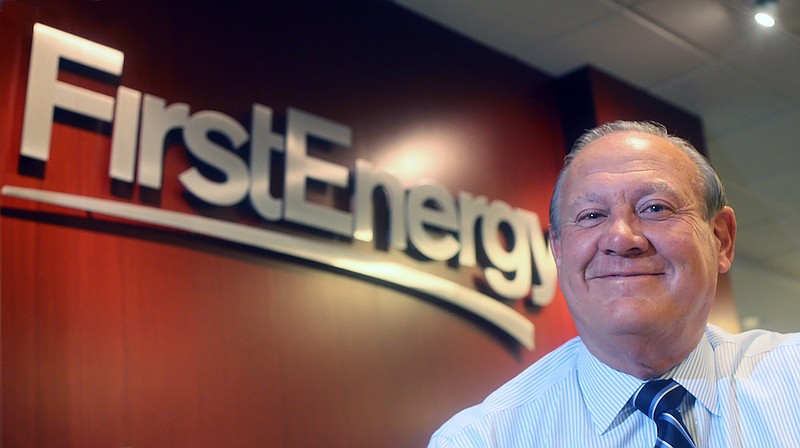FirstEnergy charged with fraud over payoffs
The energy giant at the center of a $60 million bribery scheme in Ohio has admitted to using dark money groups to fund the effort, and agreed to pay $230 million and other conditions so prosecutors won't forge ahead with a criminal case against the company.
Authorities charged Akron-based FirstEnergy Corp. with conspiracy to commit honest services wire fraud, alleging payoffs to public officials to back a $1 billion subsidy that would have had taxpayers helping the company prop up two aging nuclear plants.
That charge could be dropped in three years if the company complies with the terms of the deal, such as continuing to cooperate with investigators looking into the kickbacks to officials, who included the Ohio House speaker and a lobbyist who would become the state's top utility regulator.
The deal, signed off by FirstEnergy's president and CEO, comes in a scandal that has affected business and politics across Ohio since the arrests a year ago of then-Ohio House Speaker Larry Householder and four associates. Government officials say Householder orchestrated a plan to accept corporate money for personal and political use in exchange for passing nuclear bailout legislation and scuttling an effort to repeal the bill.
"I hope that today's announcement serves as a stern warning to other corporations and corporate executives who would sell their integrity to a public official, a group of public officials," said FBI Special Agent in Charge Chris Hoffman.
Virus complicates returns to office
Several hospital systems that previously held off making vaccines mandatory for health care workers are now willing to do so. Google employees in California who have returned to the office on a voluntary basis are again wearing masks indoors. Goldman Sachs is considering whether to reinstitute testing for fully vaccinated employees in the company's New York City offices. Apple told its workforce that it would push back its return-to-office date from September to October.
When companies began announcing tentative return-to-office plans this spring, there was a sense of optimism behind the messages. COVID cases were dwindling in the United States as the vaccine rollout picked up pace. Employers largely hoped their workforces would get shots on their own, motivated by raffle tickets, paid time off and other perks, if not by the consensus of the medical community.
In recent days, that tone has suddenly shifted. The delta variant, a more contagious version of the coronavirus, is sweeping through the country. Less than half of Americans are fully vaccinated, exacerbating the situation.
Nationally, the daily average of new coronavirus infections has surged 180% in 14 day.
Revenues surge at American Express
Spending at restaurants, shops and entertainment venues has come back in force as vaccines become more common and it fueled a revenue surge at American Express during the second quarter.
That momentum picked up as the quarter progressed, the company said Friday, particularly spending from younger customers.
"We saw card member spending accelerate from the prior quarter and exceed pre-pandemic levels in June, with the largest portion of this spending growth coming from Millennial, Gen Z, and small business customers," Chairman and CEO Stephen Squeri said in a prepared statement.
Revenue, net of interest expense, jumped to $10.24 billion from $7.68 billion last year, stronger than the $9.47 billion that Wall Street was looking for, according to a survey by Zacks Investment Research.
- Compiled by Dave Flessner
